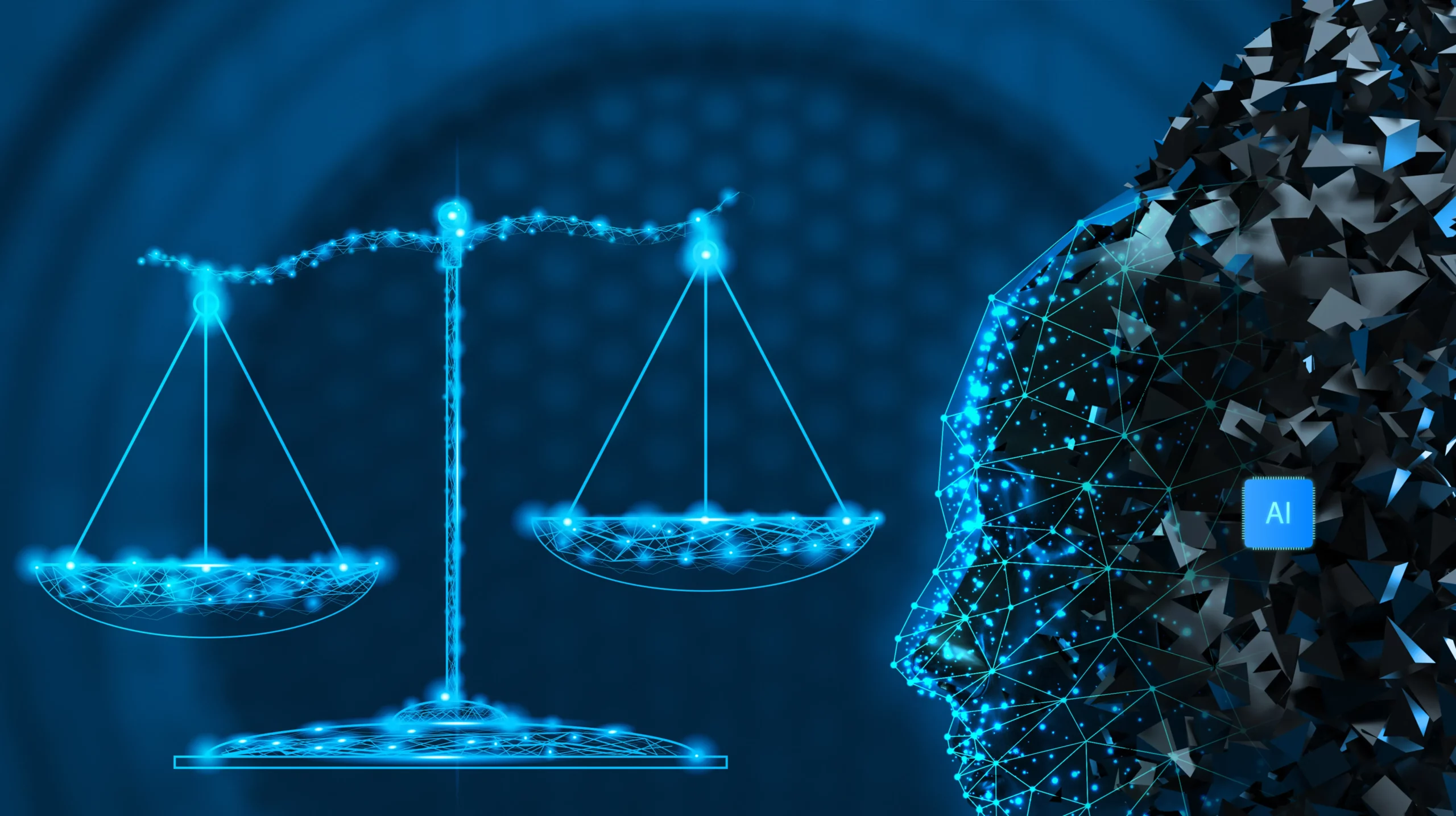- Use Cases
- March 20, 2024
Generative AI for Legal Teams & Lawyers

- Use Cases
- March 20, 2024
Generative AI for Legal Teams & Lawyers
Generative AI for Legal Teams & Lawyers
The legal sector, renowned for its methodical procedures and reliance on precedent, stands at the brink of a remarkable evolution. Generative AI, an offshoot of artificial intelligence capable of generating original content and data, is primed to reshape the practices of legal professionals. By automating routine tasks and augmenting research and case preparation, generative AI presents a myriad of advantages that can empower legal teams and streamline their operations.
Simplifying the Routine: Harnessing Automation for Efficiency
In the legal realm, a significant portion of time is dedicated to repetitive tasks such as document scrutiny, contract formulation, and legal exploration. While pivotal, these duties tend to consume extensive time and divert attention from pivotal strategic endeavors. Generative AI offers a solution by automating these tasks, liberating legal professionals to redirect their focus toward more strategic pursuits.
- Document Review: Generative AI models can be trained on vast datasets of legal documents, enabling them to identify key information, inconsistencies, and potential risks within contracts, NDAs, and other agreements. This allows legal professionals to efficiently analyze large volumes of documents and prioritize those requiring closer scrutiny.
- Contract Drafting: AI-powered platforms can assist in drafting various legal documents by prompting users with relevant clauses based on specific needs and precedents. This can significantly reduce drafting time and ensure consistency in legal language across contracts.
- Legal Research: Generative AI can be a powerful tool for legal research. By analyzing legal databases and identifying relevant case law, statutes, and regulations, AI can expedite research and provide legal teams with a comprehensive overview of legal issues.
Expanding Horizons: Beyond Traditional Automation
While automation offers substantial benefits, Generative AI’s potential extends far beyond streamlining routine tasks. Its ability to generate creative text formats can significantly enhance a lawyer’s capabilities:
- Case Preparation: AI can analyze opposing arguments and generate potential counterarguments, thus helping lawyers anticipate and address various scenarios throughout a case.
- Legal Briefs and Motions: Generative AI can draft summaries of facts, legal arguments, and supporting evidence within legal briefs and motions. This allows lawyers to focus on refining the content and ensuring strategic clarity
- Client Communication: AI-powered tools can assist in generating clear and concise communication for clients, such as case updates, explanations of complex legal concepts, and summaries of key legal findings.
Breaking Boundaries: Innovation and Efficiency
Applying generative AI doesn’t stop at automating workflows and generating content. Legal teams can leverage this technology for more innovative tasks. These include
- E-Discovery Optimization: AI can assist in identifying electronically stored information relevant to a particular case, filtering out irrelevant data, and saving lawyers significant time during e-discovery processes.
- Predictive Analytics: By analyzing historical data on legal cases, generative AI can predict the likelihood of success, potential costs, and settlement options. This data-driven approach allows for better case management and informed decision-making.
- Legal Knowledge Management: Generative AI can be used to develop comprehensive knowledge management systems, enabling legal teams to easily access and share legal precedents, best practices, and internal documents. This fosters a more collaborative and efficient work environment.
Addressing Concerns and Fostering Ethical Practices
Navigating the realm of Generative AI in legal practice necessitates a careful approach to address potential challenges. Here’s a strategic framework for responsible AI utilization:
Transparency and Accountability: Legal practitioners should grasp the limitations of AI models and prioritize transparent decision-making processes. Ensuring clarity on how AI reaches conclusions fosters accountability and trust.
Bias Detection and Remediation: AI algorithms can inadvertently perpetuate biases in training data. Implementing bias detection and mitigation mechanisms is essential to uphold fairness and ethical standards.
Human Oversight and Collaboration: While AI augments efficiency, human judgment remains irreplaceable. Lawyers must maintain oversight, leveraging AI as an aid rather than a substitute. Collaborative efforts between AI systems and legal experts optimize outcomes while preserving ethical integrity.
The Future of Law with Generative AI – A Collaborative Landscape
The emergence of generative AI marks a significant shift in the legal arena towards a more collaborative dynamic. As AI automates tasks, analyses historical data, and generates content, legal practitioners maintain their crucial role as decision-makers, utilizing their expertise to craft strategic solutions and deliver exceptional client service. By embracing generative AI, legal teams stand to enhance efficiency, bolster accuracy, and gain a competitive edge in an evolving legal landscape. As AI technology continues to advance, it underscores the importance of collaboration, innovation, and the transformative potential of artificial intelligence in shaping the future of law.




